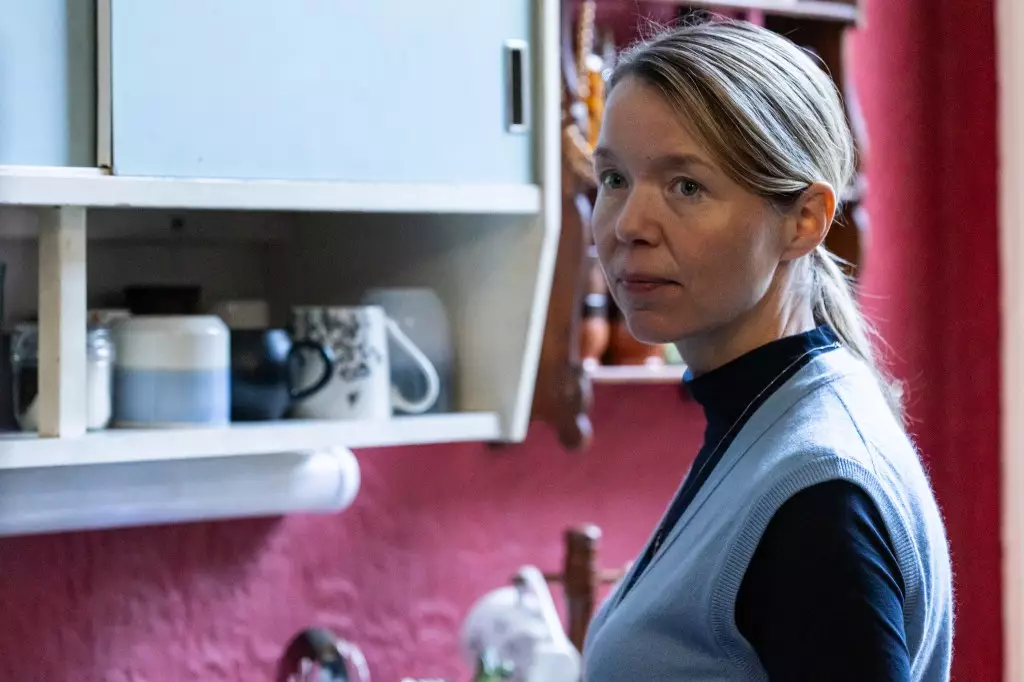Jimmy McGovern’s latest BBC drama, “Unforgivable,” ambitiously aims to peel back the layers of a complex and uncomfortable societal issue: sexual abuse and the justice system’s response. With a stellar cast led by Anna Maxwell-Martin and Anna Friel, the series ventures into the often murky moral territory surrounding rehabilitation, accountability, and human frailty. While the effort is commendable, it also raises questions about whether entertainment truly serves as an agent of change or merely a mirror held up to uncomfortable truths.
This show isn’t just another melodramatic crime story; it’s a calculated attempt to mirror the failures and ambiguities of real-world justice. McGovern’s reputation for gritty realism and social commentary lends the project gravitas, yet one must ask if the dramatization risks sensationalizing trauma or inadvertently undermining trust in societal institutions meant to protect vulnerable populations. The narrative’s focus on therapy sessions with ex-nuns and the fractured family dynamics foregrounds emotional intensity. However, it also potentially simplifies systemic issues into personal struggles, which might obscure broader institutional accountability. The series presents a raw, visceral depiction of pain, but the challenge lies in whether it offers more than just a cathartic experience—does it foster meaningful understanding or perpetuate cynicism?
The Ethical Dilemma: Reconciliation or Exploitation?
Dramas like “Unforgivable” tread a delicate line between raising awareness and exploiting suffering for entertainment. It’s undeniable that media has a profound influence on public perceptions of justice and morality. By spotlighting cases of sexual abuse, the series can contribute to destigmatization, encouraging open conversations about difficult topics that often go unspoken. Yet, the risk of sensationalism lurks in every emotional scene and charged dialogue, especially if the series prioritizes shock value over nuanced storytelling.
The portrayal of therapy sessions—featuring Maxwell-Martin as a former nun—appears designed to evoke empathy and challenge stereotypes. Still, one must question whether such portrayals risk reducing survivors’ experiences to mere plot devices. Are we empowering victims by showcasing the complexity of their trauma, or are we risking retraumatization through dramatized, possibly exaggerated, representations? Furthermore, the family’s fractured relationships highlight the ripple effect of abuse, but do they do so in a way that generates genuine understanding, or does it reinforce stereotypes of broken families and irredeemable failure?
Another ethical concern pertains to the depiction of justice recovery through rehabilitation. The idea of integrating offenders back into society via therapy can be seen as progressive, yet it also prompts debates about the efficacy and morality of such approaches in severe cases. By humanizing perpetrators, does the series risk blurring moral boundaries, or does it serve as a necessary reminder of the fallibility of the justice system? McGovern’s approach seems to lean toward emphasizing empathy, but not at the expense of accountability.
Does Artistic Ambition Match Societal Responsibility?
In an era where media shapes the collective consciousness more profoundly than ever, creators of “Unforgivable” grapple with a profound responsibility. The series embodies a liberal center-wing perspective—promoting empathy and understanding while not entirely shirking the need for systemic change. It pushes for acknowledgment of societal failures that often leave victims voiceless, yet it also invites scrutiny about whether it adequately addresses the root causes of abuse and the deficiencies in our institutions.
While entertainment can be a catalyst for societal reflection, it must be balanced against the danger of empathetic fatigue, desensitization, and the misuse of trauma narratives for ratings. McGovern’s storytelling undoubtedly pushes boundaries, but the question remains whether it does so with enough nuance and care. Excessive focus on personal trauma without contextual systemic analysis risks fostering a society that feels overwhelmed by injustice but too helpless to effect change.
Moreover, producing such intense dramas raises the issue of who benefits from this content. Audience engagement with stories of trauma should ideally translate into social activism or policy advocacy, yet it often results in voyeuristic consumption. The challenge for “Unforgivable” is whether it can transcend entertainment and become a meaningful vehicle for advocacy that respects victims’ dignity while challenging societal shortcomings.
In essence, McGovern’s latest work is a powerful reminder of the moral grey zones we navigate in addressing justice. It’s an urgent call to critically examine our collective responsibility—both through the lens of storytelling and our societal institutions—to ensure that confronting the uncomfortable truths of abuse leads not only to reflection but to meaningful action.


Leave a Reply